Whether you play mutiplayer games, chat with friends or family on Hangouts or Skype, or work from home, you need a good microphone. Here’s how to pick the best microphone for your needs.
Photos by Vincent Diamante, Paul Downey, yoppy, Hosam Al-Hwid and Matthew Keefe
Your computer may have one already, but an external mic will almost always provide better quality. It will also generally be a better match for your needs. The best type of microphone for you depends almost entirely on what you plan to do with it once you set it up. You’ll definitely want different hardware if you’re planning to do podcasting or making YouTube videos than if you’re just doing some gaming with your friends or using Skype and Hangouts to keep up with family. Let’s take a look at a few different use cases, and explain what type of microphone you’ll want in each case.
Choose The Right Form Factor And Audio Interface
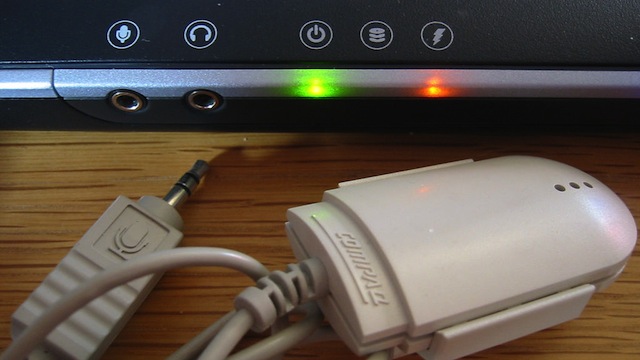
If you need a microphone for regular use, you’ll need to consider audio interfaces and microphone styles. For audio interfaces, you usually have two options:
- Analogue: Analogue mics plug directly into your PC’s 3.5mm audio-input jack. Analogue audio ports give you a lot of flexibility, since you can always add a pre-amp or more audio processing gear in between the microphone and your PC. However, if you don’t have any of that gear, you’re trusting the audio chipset on your computer’s motherboard to handle microphone duties, which can be a dealbreaker for professional uses.
- USB: As the name implies, these plug in via USB, and depending on the model, can be complicated and include their own pre-amps and audio processors. You give up some of the flexibility that analogue microphones offer, but for many users, a good USB microphone wraps up all of the features they need with good audio quality and throughput.
Microphones of both types come in all shapes and sizes. Stand-alone desktop microphones, headsets with attached microphones, and more can both be found in analogue and USB variants. One isn’t necessarily better than the other, and often the one you should buy comes down to how often you’ll need it, which ports you prefer to use (or have available), and whether you’ll ever need to plug it into anything beyond your computer.
For The Light User: Go Built-In Or A Webcam Microphone
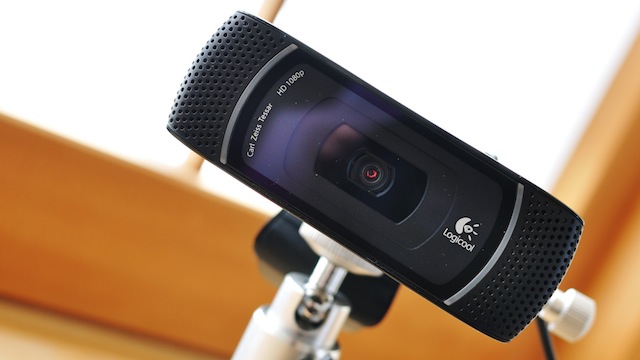
If your uses are light and you don’t really have a specific purpose for your microphone — aside from the fact that you know you’ll need it from time to time — you can probably save some money and go with the microphone built in to your laptop (if you have one), or get a solid webcam with a microphone built-in and call it a day. In smple cases, the microphone will be more than enough for your needs.
You’ll have to pay closer attention to things like ambient noise and sound in the room while you chat or while you take that video call, and your audio won’t be up to snuff if you start doing more demanding things like recording podcasts or playing multiplayer games — both of which we’ll get to in a moment — but it’s the cheapest option. Going with a built-in microphone or a desktop microphone means you don’t have the luxury of keeping the microphone close to your face while you speak, but ideally you won’t be too far from it anyway. Still, if your needs increase at all, it’s time to move on to the next category.
For The Gamer Or Frequent Video Chat User: A Headset Or Dedicated Microphone
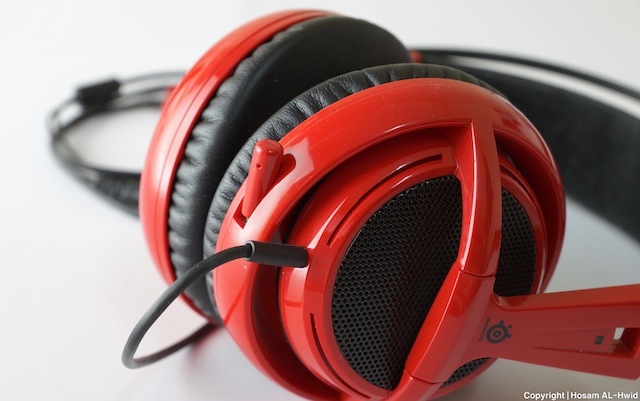
If your audio requirements are more demanding, it’s time to step up from basic options. For example, if you play multiplayer games with voice chat, work from home and participate in video calls, or regularly use Skype or Hangouts to talk to family or friends, a dedicated microphone or a headset with an attached microphone is a good investment. We’ve talked about some of the best headsets with attached microphones, and our friends at Kotaku have some gaming-focused suggestions. If you need a headset for office needs, The Wirecutter has a good affordable pick as well.
The benefit of a headset is that you have the microphone close to your mouth, and you usually have mute and volume controls on the headset itself. Plus, most headset mics are directional, meaning they do a better job of cutting out the surrounding noise that may distract anyone you’re on a call with. Plus, it’s a little less clutter to have your microphone attached to your headphones instead of a separate device on your desk.
If you have a favourite pair of headphones that you love already, a desktop microphone that you can use along with them may be in order. That way you don’t have to trade the audio quality from the headphones you love for a headset that may compromise on audio in exchange for vocal clarity. You can turn them into a headset with a microphone attachment or a little DIY muscle. We’re big fans of the V-Moda BoomPro microphone or the TekNmotion Headsetter if this is the route you choose to take.
If neither of these approaches appeals to you, a dedicated desktop microphone will do just fine, but keep in mind that those cheap $5 desktop microphones from chain stores usually won’t give you much in the way of voice quality. Depending on where it’s positioned and the type of microphone it is, you’ll sound far away, muted, or worse you’ll’ pick up a lot of extra noise and background sound.
For the Video Creator, Musician Or Podcaster: A Dedicated Microphone
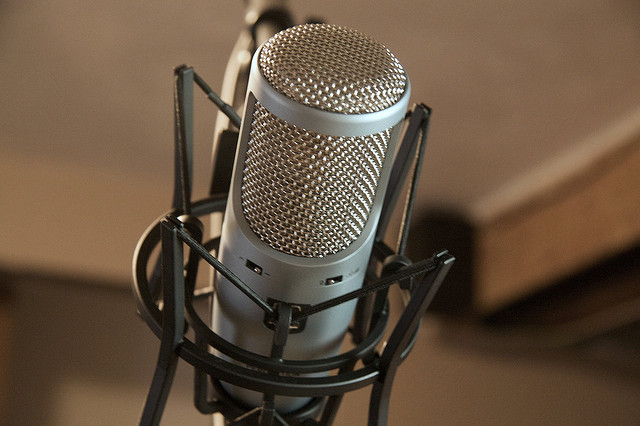
If your needs extend to recording your voice, or recording any audio at all, it’s time to step up to a microphone designed for the task. Headsets are generally enough if you’re only doing live audio, but once you need to record it and potentially mix it with other, higher-quality audio, you’ll need a microphone to match. The Wirecutter suggests the Blue Yeti, a $microphone that a few of us at Lifehacker own and can vouch for. Blue also offers a number of other models in the same range (and more expensive) that are worth checking out.
At this level, you want the highest possible quality while recording your audio so you can manipulate and edit the sound freely. Using a dedicated microphone also gives you the freedom to take your gear with you, plug in to whatever other devices you need to use, and get consistent sound anywhere. It’s especially important for musicians and podcasters, where the voice recording is just a piece of the final, mixed, edited product. It’s definitely more of an investment than some of the more affordable microphones we’ve mentioned, and some don’t bother going this route at all — instead they will stick to their favourite headset and plug it into other audio mixing gear and record their audio separately. You’ll find a number of YouTube “Let’s Play” gaming videos produced this way, so they can continue to wear gaming headsets without compromising on audio quality in the final video. If you’re really thinking about going pro, this article from Media College and this article from Sound on Sound are good jumping off points for more research.
Whichever group you fall into, hopefully we’ve given you some tips to get you started on the hunt for the perfect microphone for you. Remember, not everyone needs to spend a hundred bucks on a mic targeted at podcasters and musicians, but some people should definitely step up from the cheap analogue mic they got back in the 90s if they want the rest of their team to understand them. There’s a whole other category of users — professional audio producers — that we haven’t touched on at all in this piece, but most people will fall into one of these categories. Good luck, and happy hunting!
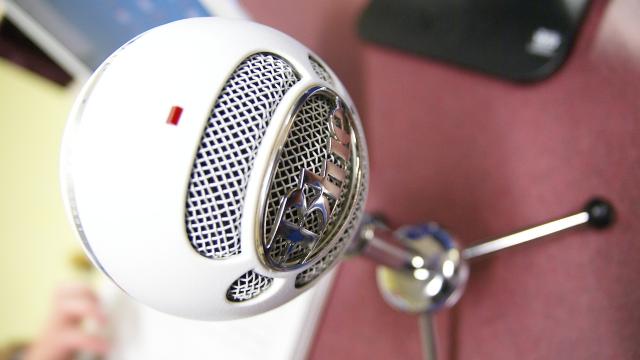
Comments
2 responses to “How To Choose The Best Microphone For Your PC”
I use an Xbox 360 headset plugged into my wired 360 controller as my PC mic, works like a charm.
Whoa I didn’t know you could do that! Thanks for the tip 😀